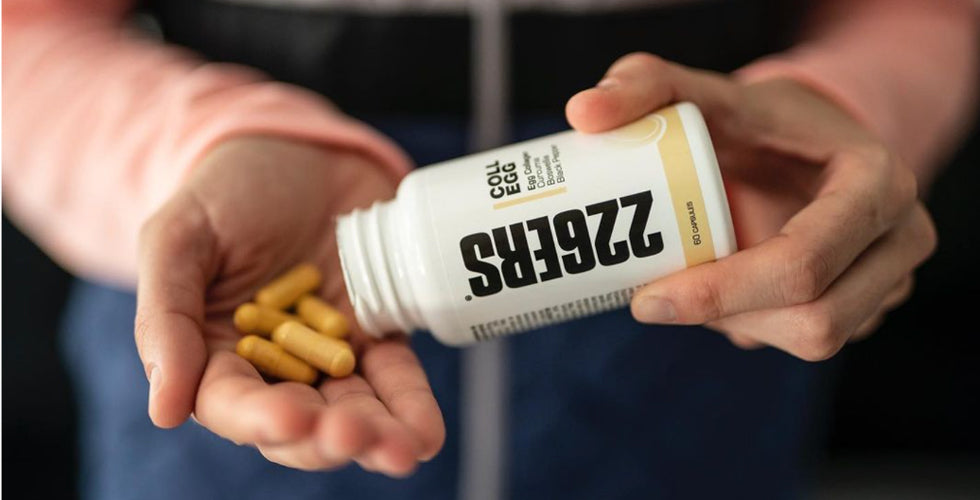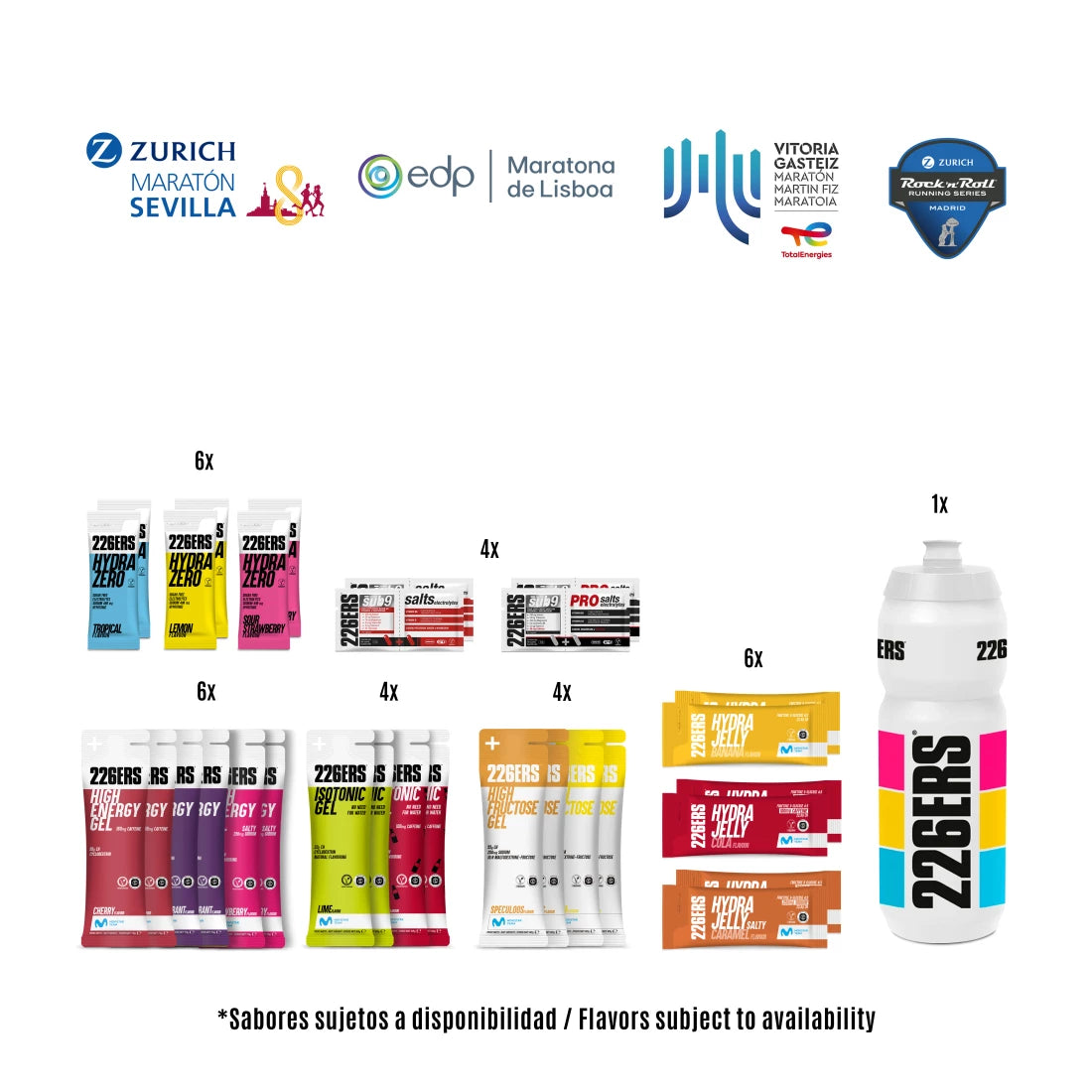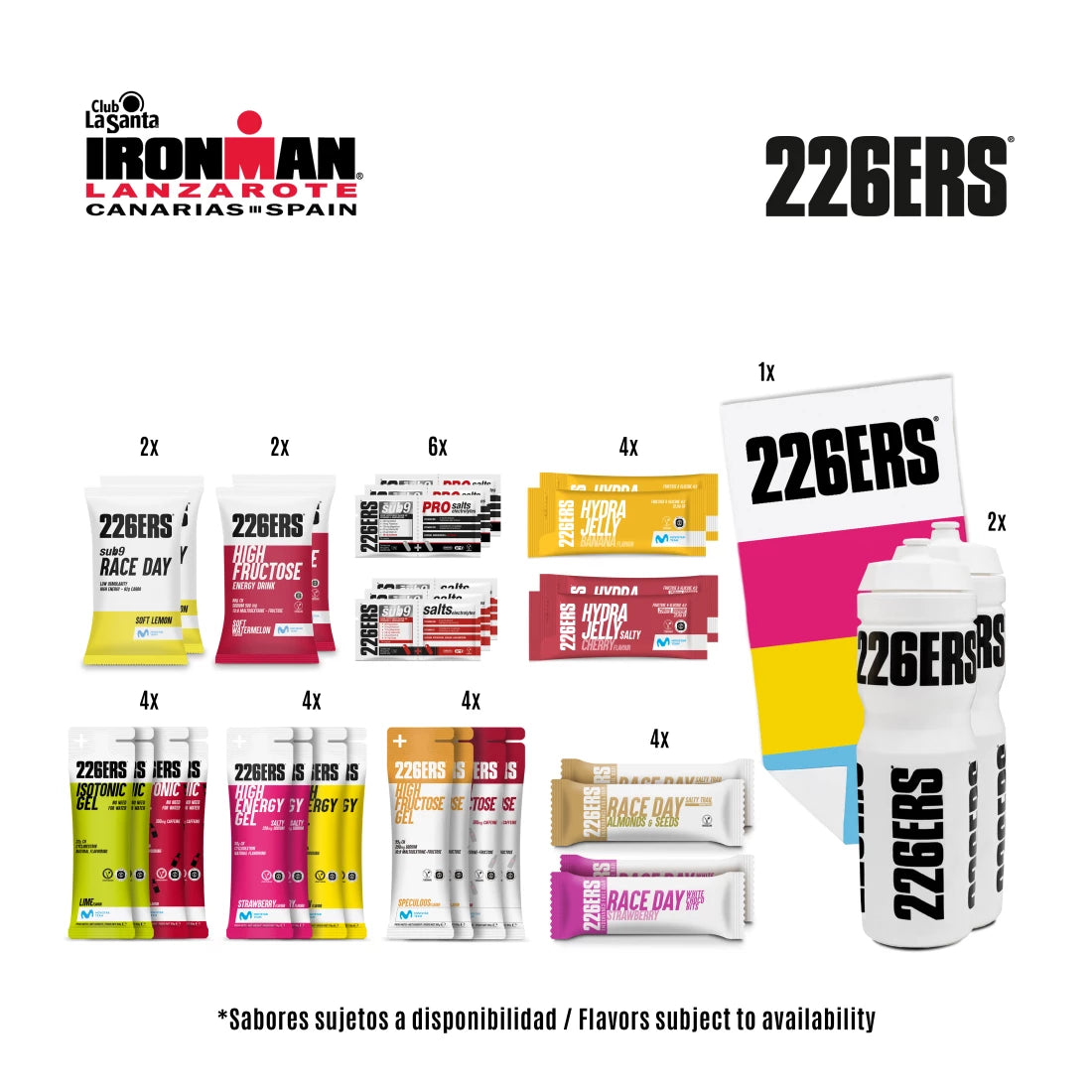Why take collagen if you do sports?

Collagen is one of the most abundant proteins of the human body. Play a role essential in the health of joints, skin, tendons and muscles. For those who practice sports regularly, Maintain adequate collagen levels can make a difference in the lesion prevention and muscle recovery. In this article we will address What is it, what is it for and how collagen can be included Within a sports nutrition strategy.
Regular physical practice implies a high biomechanical demand on connective tissues as tendons, ligaments, cartilage and fascia, whose Structural integrity depends largely on collagen. This fibrous protein is the main component of the extracellular matrix In these fabrics, contributing Traction resistance, elasticity and recovery capacity in the face of mechanical stress.
Diverse clinical studies have evidenced that the Hydrolyzed collagen supplementation can stimulate the endogenous synthesis of collagen and other components of the extracellular matrix (such as Proteoglycans), particularly when combined with physical exercise. In addition, there has been a reduction in joint pain induced by training, as well as improvements in the joint function and recovery perception.
Collagen intake, especially in shape hydrolyzed, it can be beneficial not only for OVERUSO INJURY PREVENTION (such as tendinopathies or conditions), but also as adjuvant in rehabilitation processes. It has been proposed that Joint Vitamin C and collagen administration enhances the synthesis of type I and III collagen, thanks to the participation of ascorbic acid as a cofactor in the hydroxylation of proline and lysine during the formation of collagen fibers.
In summary, Collagen supplementation represents a promising strategy To optimize the Musculoskeletic health in active populations, especially in those subjected to repetitive or high intensity loads.
What is collagen?
Collagen is a structural protein present in connective tissues of the body: skin, bones, ligaments, tendons and cartilage. Its main function is Provide resistance, elasticity and cohesion to tissues. It is predominantly located in connective tissues, such as dermis, bone tissue, cartilage, tendons and ligaments, where it fulfills an essential function in mechanical integrity and architecture of the extracellular matrix.
Its main function is to confer tensile resistance, elasticity and cohesion to tissues, contributing to their stability and functionality. With aging, the endogenous biosynthesis of collagen decreases progressively, which translates into a loss of density and elasticity in connective tissues. This phenomenon can compromise the biomechanical performance of the locomotor apparatus and increase susceptibility to musculoskeletal lesions, particularly in contexts of intense or prolonged physical activity.
Types of collagen and their functions
To date At least 28 different types of collagen have been identified, classified according to their molecular structure and tissue distribution. However, in the context of musculoskeletal health and sports performance, types I, II and III are the most relevant due to their direct involvement in the integrity of connective tissues subjected to mechanical load.
- Type I collagen: It is the most abundant type in the human body and is predominantly located in tendons, ligaments, bone tissue, dermis and joint capsules. Form thick fibers with high tensile strength, being fundamental for the rigidity and stability of the structures that support load. Its biosynthesis is essential for bone remodeling and repair of tendon lesions
- Type II collagen: It is mainly found in the hyaline cartilage, including joint surfaces, intervertebral discs and costal cartilage. It forms a network of fine fibrils that confers resistance to compression and elasticity, and its maintenance is critical for joint functionality. Its deterioration is associated with degenerative processes such as osteoarthritis, especially in athletes subjected to repetitive articular stress.
- Type III collagen: It frequently coexists with type I in tissues with high relapse capacity, such as skeletal muscle, vascular wall, lung tissue and intestine. It participates in the architecture of viscoelastic organs and is especially relevant during tissue repair processes and angiogenesis.
Each type of collagen fulfills specific structural and biochemical functions, so its relevance varies according to the type of physical activity, the physiological state of the individual and the therapeutic or preventive objectives. The selection of supplements collagen should consider these differences, as well as its molecular form (native or hydrolyzed) and its bioavailability.
Collagen benefits for athletes
Collagen supplementation has become an increasingly popular strategy between athletes and active people, thanks to their potential to improve musculoskeletal health and favor physical performance. Various studies suggest that collagen can contribute multiple benefits in the sports context:
- Joint health improvement: Collagen contributes to the maintenance of joint cartilage, helping to reduce pain and inflammation associated with intense or prolonged physical activity. This can translate into greater mobility and comfort during training.
- Injury prevention: By strengthening structures such as tendons and ligaments, collagen can increase its resistance and elasticity, thus reducing the risk of common injuries such as sprains, breakage or tendinopathies.
- Muscle recovery: The hydrolyzed collagen provides key amino acids, such as glycine, proline and hydroxyproline, involved in repairing the connective and muscle tissue after exercise, accelerating recovery and decreasing post-training fatigue.
- Bone health: Its consumption can favor bone matrix synthesis and improve mineral density, which is especially relevant in high -impact sports, where bones are subject to repetitive loads.
- Improvement of the elasticity and appearance of the skin: In disciplines where body aesthetics also plays an important role, such as bodybuilding, dance or fitness, collagen can contribute to firmer, hydrated and elastic skin, also helping to counteract oxidative stress induced by exercise.
Together, collagen supplementation, always within a balanced diet and an adequate training program, can be a Useful tool to optimize physical health and prevent problems associated with the wear of the locomotor device.
How and when to take collagen?
The effectiveness of collagen as a supplement depends not only on its type, but also on the moment and the way it is consumed. These are the main considerations to optimize their absorption and benefits in the sports context:
● Form of presentation:
Hydrolyzed collagen (also known as collagen peptides) is the most used form in sports supplementation, due to its high bioavailability. Being previously broken into smaller fragments, it is absorbed more easily at the intestinal level.
● Available formats:
It is marketed in dust, capsules, tablets or liquid. The choice depends on the comfort and preferences of the user, although the collagen powder allows the recommended daily dose to be adjusted more precisely.
● Recommended dose:
Various clinical studies suggest a daily intake between 10 and 15 grams of hydrolyzed collagen to obtain benefits in joint, tendon and bone health. It is advisable to combine it with vitamin C, since this vitamin acts as a cofactor in the synthesis of endogenous collagen, enhancing its effects.
● Ideal Moment of Consumption:
It can be taken in the morning, as part of breakfast, or after training, at which time the body is more receptive to nutrients related to recovery. Eating it together with a meal containing natural proteins and antioxidants can improve its effectiveness.
Collagen combination with other nutrients
To enhance its effect, it is recommended to combine collagen with:
● Vitamin C: It stimulates the natural production of collagen.
● Magnesium: It helps maintain the normal functioning of muscles and bones.
● Hyaluronic acid: Improves the hydration of the joints.
● Quality proteins: They complement the contribution of amino acids necessary for protein synthesis.
Possible side effects and contraindications
Collagen is safe for most people. However:
● Some people may experience mild digestive discomfort.
● It should be avoided in allergic people to sources of origin (for example, fish or egg).
● It is always advisable to consult with a health professional before starting supplementation.
Collagen is not just an aesthetic protein. For athletes, it represents a strategic supplement that helps protect the joints, improve recovery and maintain the structure of the body in optimal conditions. Its proper and constant use, combined with a balanced diet, can be key to sports performance and longevity.
Frequent questions
Is collagen only for older people?
No. Young athletes can also benefit of its use to prevent injuries and favor recovery.
How long does it take for collagen to take effect?
The first effects are usually noticed among 6 and 12 weeks, especially in joint health.
Can I take collagen if I already take protein?
Yeah, They are compatible supplements. Collagen does not replace a complete protein, since it is poor in some essential amino acids.
What type of collagen is better for the joints?
The collagen Type II, especially if Combine with chondroitin or hyaluronic acid.
The collagen fattens?
No. It has low caloric content and It is not associated with weight gain if consumed in adequate doses.












